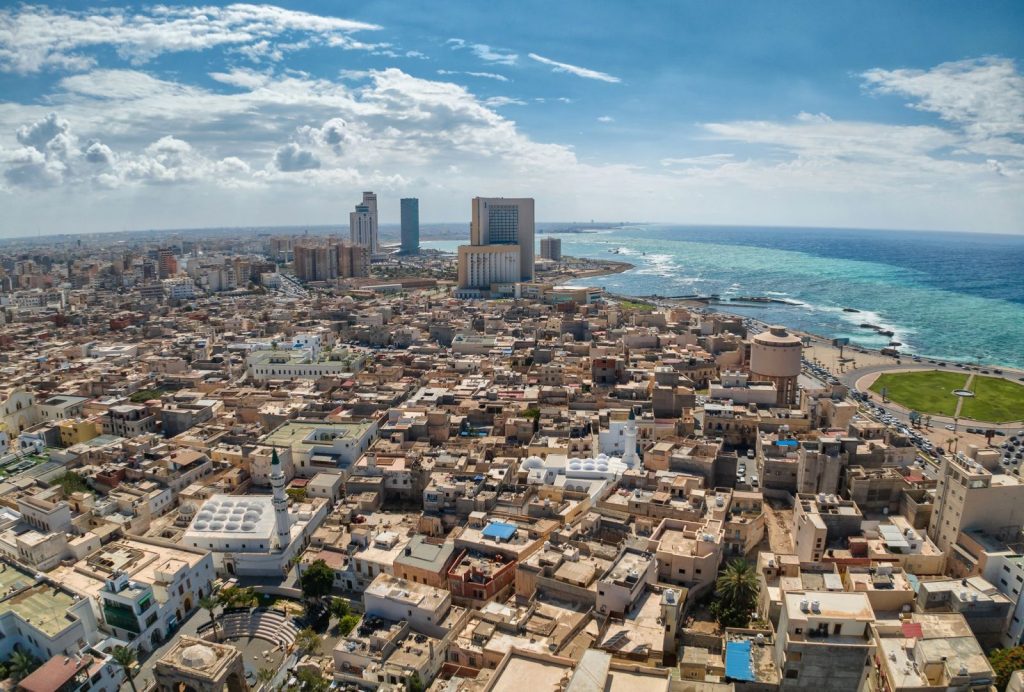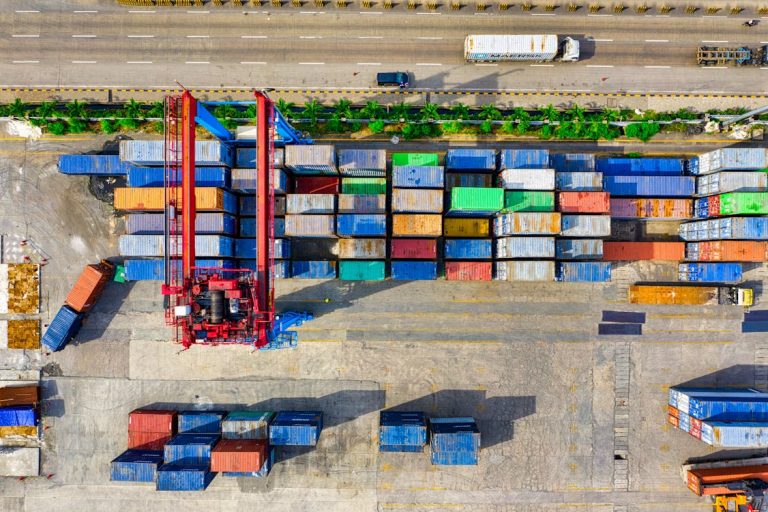Libya oil reserves hold a significant position in the global energy landscape, offering both immense potential and complex challenges. As one of Africa’s largest oil producers, Libya boasts vast reserves that have attracted international interest for decades. However, the journey to harnessing these resources has been anything but straightforward.
Our exploration into Libya’s oil reserves unveils a story of opportunity intertwined with political and economic hurdles. The nation’s oil wealth has the power to transform its economy, yet it remains entangled in a web of geopolitical tensions and internal strife. Understanding the dynamics of Libya’s oil sector is crucial for stakeholders aiming to navigate this intricate environment.
As we delve deeper, we’ll uncover how Libya’s oil reserves impact not only its national prosperity but also the broader energy markets. By examining the intricate balance of opportunity and challenge, we gain insight into the future potential of this critical resource.
Table of Contents

Overview Of Libya Oil Reserves
Libya holds substantial oil reserves, the largest in Africa, with approximately 48 billion barrels. These reserves play a crucial role in the global energy landscape and significantly contribute to Libya’s GDP. Along with natural resources, the country’s oil sector faces challenges, including geopolitical tensions and internal conflicts, which affect production and investment opportunities.
Regional location and proximity to European markets enhance Libya’s strategic importance. Its light, sweet crude is highly sought after due to its lower sulphur content, resulting in easier refining processes. Despite these advantages, ongoing instability hampers consistent oil output, averaging around 1.2 million barrels per day in recent years.
Emerging opportunities exist as international partnerships and investments aim to stabilise and expand Libya’s oil infrastructure. As industry leaders in providing expert guidance, we at Qabas strategically advise organisations navigating operational complexities in Libya’s oil sector. Our expertise in risk management and strategy ensures a comprehensive understanding of these dynamics, positioning us as an essential partner for firms operating in this challenging environment.
Historical Context
Libya’s oil reserves have a rich history that dates back over a century. This history significantly influences its current standing in the global energy market, presenting both opportunities and challenges.
Discovery And Development
Oil exploration in Libya began in the 1950s, leading to the discovery of the first major oil field, Zelten (now known as Nasser), in 1959. Foreign companies played a key role in these early explorations, laying the groundwork for Libya’s present-day oil industry. By the 1960s, Libya emerged as a leading oil exporter within Africa, driven by its abundant reserves and strategic location.
Initial development centred on major fields such as Sarir and Messla. Infrastructure rapidly expanded, with pipelines and export terminals constructed to accommodate growing production. Over time, national oil policies evolved, especially after Libya nationalised its oil industry in the 1970s. This shift sought to ensure that Libya’s oil resources directly benefitted the national economy. Our expertise in understanding these historical dynamics gives us insights into the complexities of the sector.
Impact On The Economy
Libya’s oil reserves have heavily influenced the national economy, providing a substantial share of the country’s GDP and government revenue. Oil exports account for over 90% of Libya’s export earnings. During periods of stability, high production levels bolstered economic growth and development. However, political upheavals and armed conflicts, particularly in the last decade, have led to frequent disruptions and production inconsistencies.
Oil revenue has historically underpinned Libya’s development projects and social services, shaping its economic landscape. Our role involves assessing these impacts, helping us guide clients through the implications of fluctuating production and revenue. By understanding how historical and economic contexts intersect, we ensure effective operational strategies.

Current Status Of Libya’s Oil Reserves
Libya’s oil reserves remain a significant asset in the global energy market despite ongoing challenges. Understanding the dynamics of production and exportation is key to tapping into its full potential.
Production Levels
For years, Libya’s oil production levels have fluctuated due to internal conflicts and infrastructural challenges. Recent estimates place daily output at approximately 1.2 million barrels. This figure, while substantial, remains below the country’s previous highs. Stability emerges as a critical factor for consistent production. Our consulting services highlight effective risk management strategies, helping navigate these complexities.
Export Dynamics
Libya exports most of its oil to European countries, its strategic proximity facilitating these transactions. Despite potential export hurdles, oil exports consistently provide the bulk of national income. As experts in the field, we offer insights into optimising export operations, fostering resilience in fluctuating markets. With a profound understanding of local and global landscapes, our firm supports clients aiming for strategic growth in oil trade.
Qabas’s strategic expertise positions us as an ideal partner for entities looking to excel in Libya’s challenging yet rewarding oil sector.
Challenges Facing Libya’s Oil Industry
Libya’s oil industry plays a pivotal role in its economy, yet faces multifaceted challenges that affect production and growth.
Political Instability
Political instability significantly disrupts the oil sector in Libya. Frequent changes in government, ongoing civil conflict, and rival factions vying for control have led to a fragmented management structure. These political changes create uncertainty in policy making, which deters long-term investment. The lack of a stable governing authority affects not only production levels but also the confidence of international investors. Political volatility makes it difficult to implement consistent strategies for sustainable oil management.
Infrastructure Issues
Libya’s ageing infrastructure presents problems for the oil industry. Many production facilities, pipelines, and ports suffer from a lack of maintenance and modernisation after years of neglect. Equipment malfunctions and pipeline leaks result in production delays and increased operational costs. Moreover, attacks on oil facilities by armed groups further degrade infrastructure reliability. Addressing these infrastructure challenges is essential for optimising production and enhancing export capacity. We see opportunities for strategic partnership with established firms to enhance these facilities’ performance.
By understanding these obstacles, stakeholders in Libya can work towards solutions that promote stability and growth in the oil sector.

Future Prospects For Libya’s Oil Reserves
Libya’s extensive oil reserves offer vast potential for future development. To harness this potential fully, we must explore viable investment opportunities and assess growth prospects within the sector.
Investment Opportunities
Libya’s oil industry presents significant opportunities for investors aiming to engage with one of the world’s substantial reserves of light, sweet crude. Favourable market conditions, such as the proximity to European markets, enhance the appeal of investing in Libya’s oil sector. Collaborative ventures with firms like Qabas could facilitate the integration of advanced technologies and risk management frameworks, promoting sustainable growth. Strategic partnerships focused on infrastructure rehabilitation and expansion can unlock further value, benefiting both local and international stakeholders.
Potential For Growth
The potential for growth in Libya’s oil sector is substantial but requires a stable operational environment. Renovation of existing infrastructure and the introduction of efficient extraction and processing technologies could boost production levels beyond the current 1.2 million barrels per day. Pairing these advancements with robust strategy and operations management, as seen in the expertise offered by Qabas, holds promise for revitalising the sector. By fostering political stability and encouraging transparent governance, Libya can attract further international investment, accelerating economic transformation through its oil reserves.
Environmental Considerations
Libya’s oil industry significantly impacts the environment, primarily through oil spills, gas flaring, and waste management challenges. Spills occur during extraction, transportation, and storage, causing soil, water, and air pollution. Remediation efforts are constrained by ongoing instability in the region, which complicates effective response measures.
Gas flaring, a common practice in oil fields, releases large volumes of carbon dioxide, contributing to global warming and air pollution. Implementing technologies to capture and utilise associated gas could mitigate emissions, offering economic benefits through enhanced energy recovery.
Waste management presents another critical concern, as inadequate waste disposal from oil extraction processes can harm ecosystems, threatening biodiversity and human health. Comprehensive strategies for waste minimisation and recycling are vital to mitigate these impacts, although they require significant investment and stable governance.
Environmental standards play a pivotal role in shaping the oil sector’s sustainability. Adopting international environmental best practices could enhance Libya’s global standing and ensure long-term viability of its oil resources. For oil companies involved in the Libyan oil sector, integrating sustainable practices into operations provides opportunities to improve environmental performance and align with global trends towards cleaner energy.
Our focus on strategic partnerships and investments foregrounds the importance of aligning environmental considerations with operational goals. This holistic approach not only enhances environmental outcomes but also supports a resilient and competitive oil industry that can thrive amidst internal and external challenges.

Conclusion
Libya oil reserves present a unique blend of opportunities and challenges within the global energy market. While the potential for economic growth is immense, achieving stability and modernising infrastructure are crucial steps forward. By fostering international partnerships and adhering to sustainable practices, Libya can enhance its oil sector’s resilience. The integration of advanced technologies and transparent governance will be key to unlocking the full potential of these vast reserves. As we look to the future, a balanced approach that considers both economic and environmental factors will be essential in ensuring Libya’s oil industry can thrive sustainably.
Frequently Asked Questions
What makes Libya’s oil reserves significant in the global energy market?
Libya’s oil reserves are significant due to their sheer size and quality, with an estimated 48 billion barrels of light, sweet crude, which is easier to refine. As one of Africa’s largest oil producers, Libya plays a crucial role in the global energy landscape. Its strategic location near European markets enhances its importance, allowing for efficient export operations. Despite challenges, Libya’s oil remains a pivotal asset due to its high demand and potential to transform the national economy through revenue generation.
How do geopolitical tensions impact Libya’s oil production?
Geopolitical tensions in Libya lead to inconsistent oil production due to internal conflicts and political instability. Frequent government changes and civil unrest create a fragmented management structure, deterring long-term investments and disrupting operational consistency. This instability results in production fluctuations, with recent outputs averaging around 1.2 million barrels per day, below past highs. To stabilise production, Libya requires political stability and a cohesive approach to managing its oil industry, fostering an environment conducive to sustainable production and investment.
Why is Libya’s light, sweet crude highly sought after?
Libya’s light, sweet crude is highly sought after because it contains lower sulphur content, making it easier and cheaper to refine into high-quality products like petrol and diesel. This type of crude oil is more environmentally friendly compared to heavier, sour crudes, which require more extensive processing. As a result, Libya’s oil is favored by international markets, especially in Europe, which values it for its efficiency and quality in refining, thus contributing significantly to Libya’s export earnings and economic stability.
What challenges does Libya face in maintaining its oil infrastructure?
Libya faces multiple challenges in maintaining its oil infrastructure, primarily due to political instability, neglect, and aging equipment. Political volatility leads to inconsistent management and investment, while frequent attacks on oil facilities exacerbate infrastructural damage. The lack of regular maintenance results in equipment malfunctions and production delays. To overcome these issues, Libya needs strategic partnerships to enhance infrastructure performance and adopt modern technologies to ensure efficient and uninterrupted production and export of oil.
How does political stability affect international investment in Libya’s oil sector?
Political stability is crucial for attracting international investment in Libya’s oil sector. Instability deters investors due to risks of disruptions, fragmented management, and unreliable legal frameworks. Stable governance ensures transparent operations, secure environments, and consistent policies, encouraging foreign investments. Stability also fosters trust, facilitating partnerships that can introduce advanced technologies and expertise, which are essential for optimising production and expanding infrastructure. Achieving political stability could unlock significant investment opportunities, catalysing economic development and maximising Libya’s oil sector potential.
What opportunities exist for international partnerships in Libya’s oil industry?
Libya’s extensive oil reserves and strategic location present significant opportunities for international partnerships. Collaborations can enhance infrastructure through the integration of advanced technologies and risk management frameworks, boosting production efficiency. The close proximity to European markets offers attractive conditions for export operations. Potential partnerships with firms like Qabas can facilitate knowledge transfer, optimising extraction and refining processes. Stable governance and transparent policies would further encourage international investments, promoting sustainable growth and infrastructure development, ultimately enhancing Libya’s standing in the global oil market.
What environmental concerns are associated with Libya’s oil industry, and how can they be addressed?
Libya’s oil industry faces environmental concerns, including oil spills, gas flaring, and waste management challenges. Oil spills during extraction and transportation cause pollution, while gas flaring contributes to global warming. Inadequate waste disposal affects ecosystems and health. Addressing these issues requires adopting international environmental standards and sustainable practices. Implementing effective waste management and reducing emissions can mitigate environmental impacts, enhancing Libya’s global reputation. By aligning environmental goals with operational objectives, Libya can secure a resilient, competitive oil industry capable of facing both internal and external challenges.



